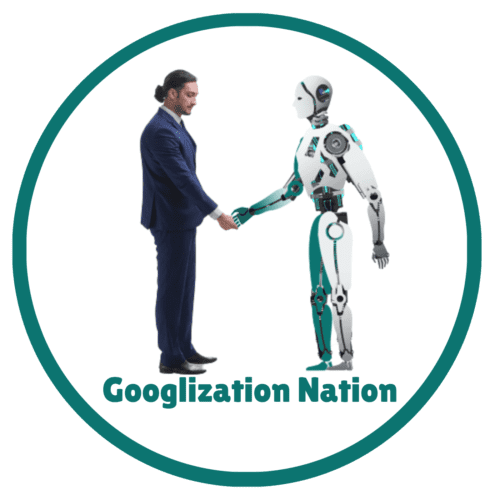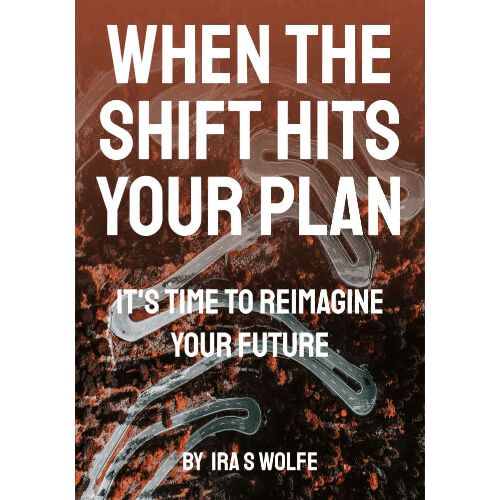Decoding AQ with Ross Thornley
An Interview with Adaptability Practitioner Ira S Wolfe
FEATURED GUEST – IRA S WOLFE
Coming from a family of small business owners led Ira to view businesses primarily as employers. They thrive on the quality of the relationships they can build with their employees. He carried that through his first career as a dentist and into his current position as Chief Googlization Officer at Success Performance Solutions.
Even as a dentist, Ira identified mostly as an entrepreneur. He learned to identify which skills he built as a dentist were transferable to other lines of work, such as diagnostics, building teams, and critical thinking. This kind of transfer is more important than ever and is closely related to adaptability.
WATCH, LISTEN, LEARN
Quotes
[10:38] “I was using assessments almost 35 years ago to understand how we can become better as a team.”
[11:56] “It takes multiple assessments to get a big picture. What I really like about the Adaptability Quotient is that you have fifteen dimensions, but ten of them are related to use personally.”
[20:09] “A company that we recognize as one of the best in HR completely ignored identifying essential workers.”
[20:50] “There aren’t many companies prepared.”
[21:13] “We’re all adapting, which ultimately becomes, ‘What’s the skill that we need?’”
[22:07] “Good critical thinking skills and a healthy sense of curiosity have carried me through.”
[22:48] “I think whether it’s continuous learning, being open minded, critical thinking skills–that’s not new. Those are the skills we’ve been talking about we would need for a decade.”
[24:19] “I haven’t seen any news skills except for one: unlearning.”
Podcast Notes
Adaptability creates freedom [8:13]
Leaving his dentistry practice confused many people around him, but Ira felt free to leave because he was able to identify the transferable skills that could launch him into his next chapter. Instead of being boxed in by his title and work experience, Ira was able to use the entrepreneurial and business skills he had developed to adapt to change in his life.
Being adaptable gave Ira the freedom to launch a new chapter, and working to build adaptability can help you do the same thing. Being adaptable is one of the best ways to get ahead of change and make sure you are ready for whatever the future holds.
Throughout his dentistry practice, Ira relied on assessments. Of course, for a dentist, this includes x-rays, bloodwork, and other medical tests, but Ira also incorporated assessments into his business management practices. He used tools like Myers-Briggs, DiSC, and various other assessments to understand how he could build effective teams.
This ability to understand his team and adapt to make it effective helped Ira build not only a resilient dentistry practice, but also be able to move confidently into another chapter. It takes multiple assessments to get a complete picture of a person or a team, but the AQai assessment measures a wide range of dimensions in one test.
Adapting to VUCA-level change [14:58]
VUCA stands for volatile, uncertain, complex, and ambiguous. These are words we hear every day now–on the news, in business, and even in politics. This term was first used by the US military to describe the now geopolitical environment after the fall of the Berlin Wall and Ira is terrified and fascinated by how VUCA-level change is happening in our workplaces and marketplaces today.
Given the scale and pace of the changes we are living through, it’s hard to find companies that were prepared. There are some companies doing better than others, but everyone is on a learning curve trying to identify how to adapt to this new normal and identify what skills are really needed now.
Ira thinks that not much has really changed, which is good news! Skills like critical thinking, open mindedness, and continuous learning are still needed, just like they were a decade ago. However, we did not expect we would need so much of those skills so quickly.
One new key skill to adapting to VUCA-level change is unlearning. We must now be able to unlearn things we thought of as normal. This is beyond just being open to new ideas. It is more like rewiring our brains to embrace a new way of doing things.
Preparing for the future [36:11]
One strategy for adapting to the future is to address each piece of VUCA-level change individually. To remedy the volatility, make sure you have a vision. Strive for more understanding of the change to combat the uncertainty. Look for clarity in the complexity. Finally, practice benign agile and adaptable in response to ambiguity. This way of thinking, called “VUCA prime,” sets a new path forward through change.
One of the most powerful things to do is use an effective assessment to take stock of where you are right now. What skills do you need to learn? What do you need to unlearn? An assessment like the AQai can help with this step. It is a well-rounded tool that can give thorough insights into individual employees, teams, and work environments.
When the shift hits your plan [45:15]
Ira has authored numerous books, but if he was to write one more chapter that captures the most important ideas, it would be called “When the Shift Hits Your Plan.” That’s because he believes the most important skill for the future is the ability to adapt to shifts. That’s why Ira is so excited about AQ–it gives a roadmap for adapting when major shifts happen in your life.


